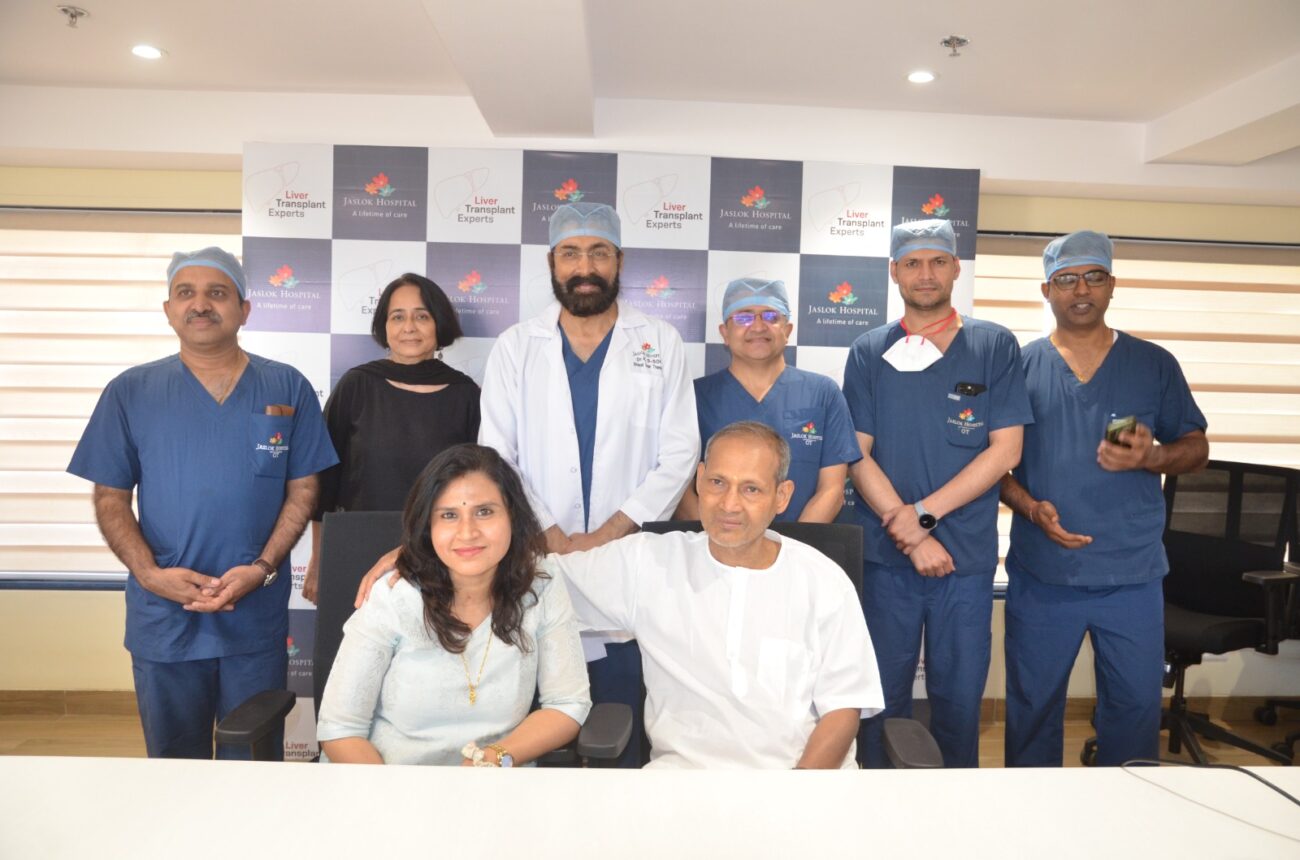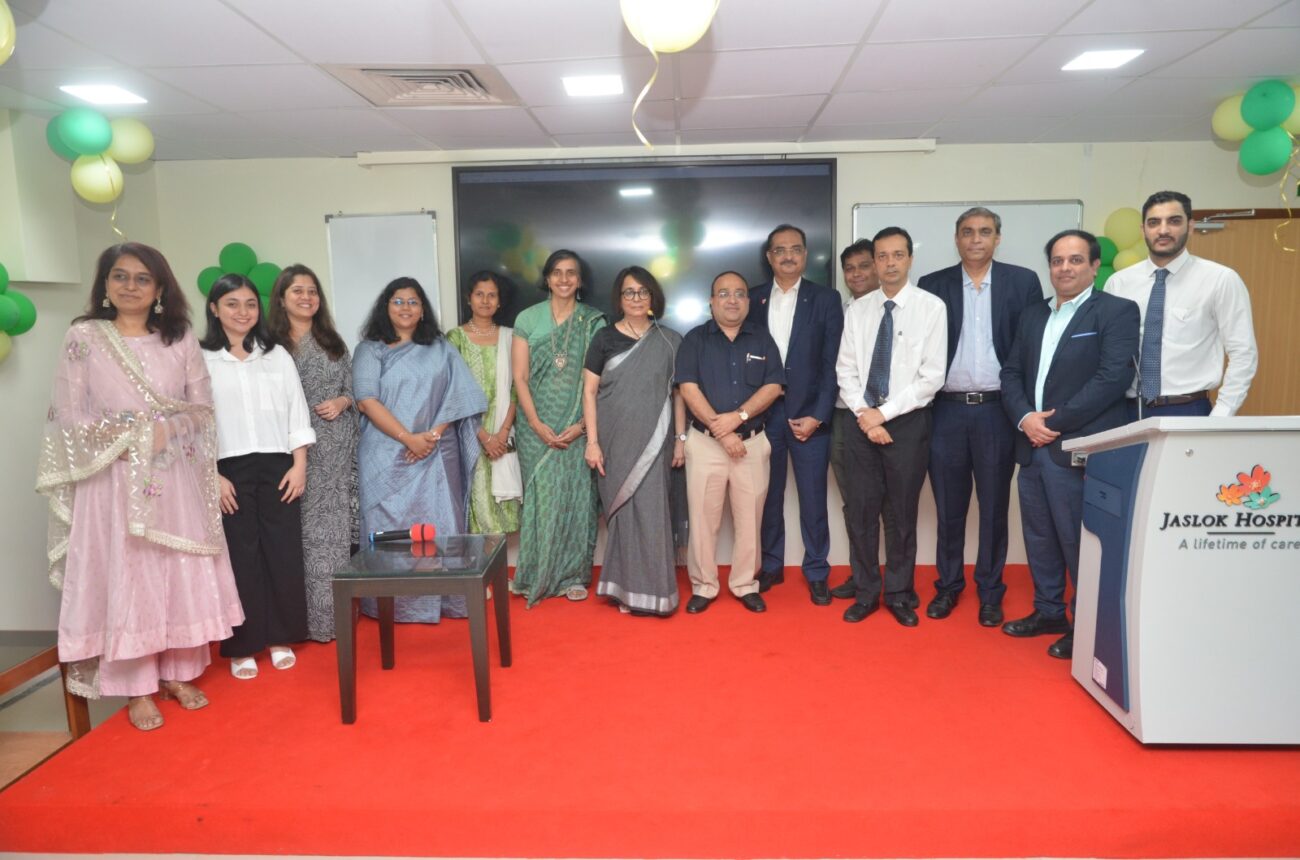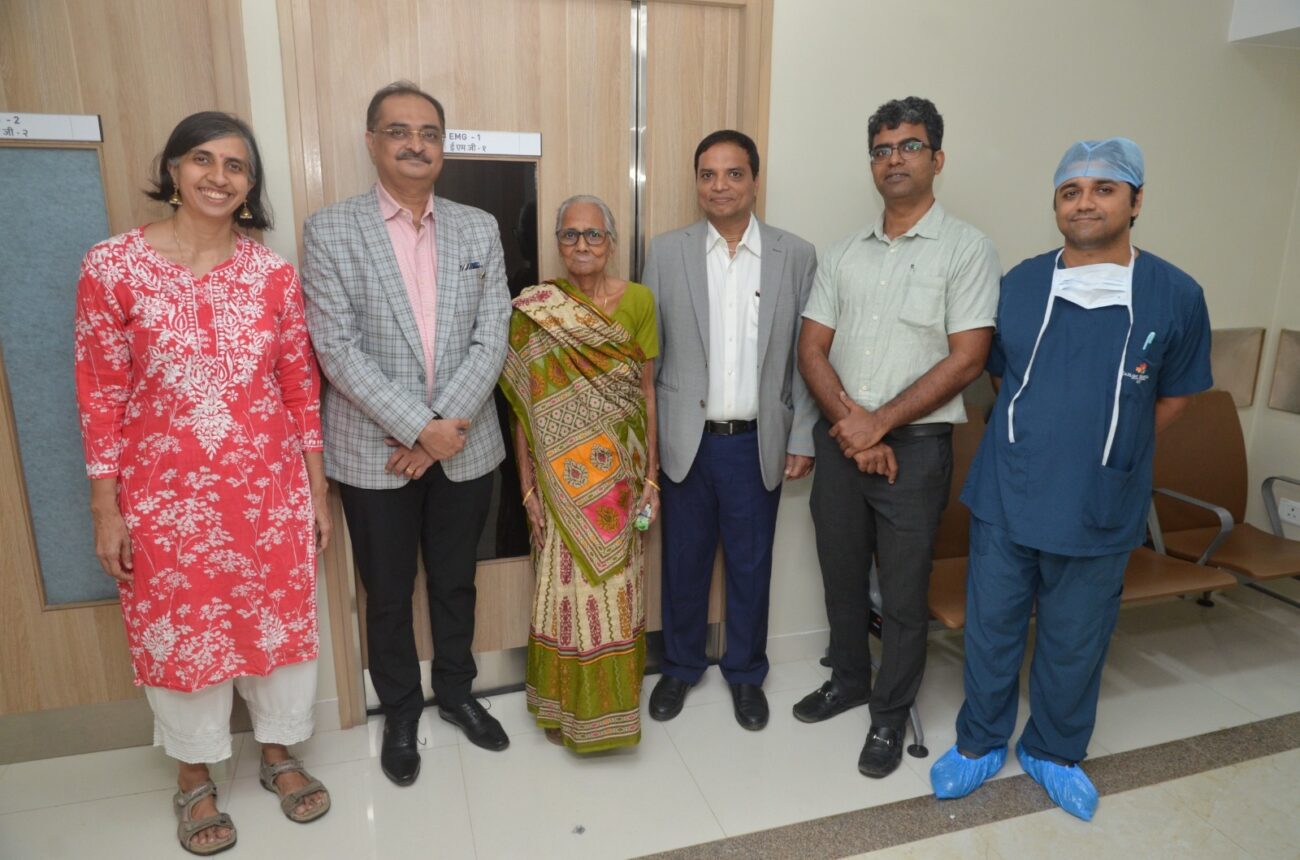WESTERN INDIA’S FIRST FULLY ROBOTIC LIVER DONOR SURGERY PERFORMED AT JASLOK HOSPITAL, MUMBAI
Mumbai’s Jaslok Hospital recently achieved a major milestone by performing Western India’s first fully Robotic Liver Donor Surgery on 40-year-old Sujata Sahu. Doctors, A. S. Soin, Kamal Yadav, Amit Rastogi and Pravin Agarwal performed this

Mumbai’s Jaslok Hospital recently achieved a major milestone by performing Western India’s first fully Robotic Liver Donor Surgery on 40-year-old Sujata Sahu. Doctors, A. S. Soin, Kamal Yadav, Amit Rastogi and Pravin Agarwal performed this successful surgery a month ago.
Sujata Sahu’s landmark surgery made a life-saving liver transplant possible for her 69 year old father, Panchanan Patra, who was terminally ill with Autoimmune related Cirrhosis and cancer of the Liver.
Prior to the transplant, Sujata was very keen to save her father by donating a part of her liver. However, she was worried about the visible scar on the abdomen and pain from the surgery.
Dr. A.S. Soin, the Lead Surgeon and Chairman of Liver Transplantation, said, “Sujata’s anxiety was not uncommon. Many prospective donors hesitate to donate for the same reason. She was relieved when we offered to operate with the fully robotic technique, which leaves no big scar on the abdomen, and the pain is minimal. The robotic approach has revolutionized liver donor surgery. Most of the post-operative pain and wound problems associated with open donor surgery due to abdominal wall trauma are avoided with this technique. In fact, in our experience, Robotic surgery has helped to increase the willingness for donation by at least 30%”, added Dr. Soin.
Dr. Pravin Agarwal, Senior Consultant Hepatobiliary and Liver Transplant Surgeon, explained, “before the transplant, we performed a detailed liver matching and multi-system check to ensure the transplant was safe for both, the donor and the patient. A special Robotic liver surgery 3D-CT scan protocol was followed in preparation for smooth surgery. We proceeded once we found the pair to be suitably matched.”
Dr. Kamal Yadav, Senior Robotic Transplant Surgeon said that the donor operation was accomplished via small 8-10 mm holes in the abdomen, using fine robotic instruments that were controlled on the robotic console by us. When the donor’s partial liver was ready for removal, we retrieved it via a concealed 9 cm incision just above the pubic bone. Compared to the open cut, this incision is much smaller, hidden and does not involve any muscle cutting. This helps in quicker, relatively pain-free recovery for the donor who can return to work and normal activities much sooner than with the open incision.
Elaborating on the coordination needed to accomplish the donor and recipient surgeries, Dr. Amit Rastogi, Director of Liver Transplant Surgery, said, “Mr Panchanan’s surgery was performed simultaneously in the adjacent operating room, and meticulously synchronized with the donor surgery. We removed the patient’s entire diseased liver, and prepared the abdomen to receive the robotically retrieved hemi-liver. After bench surgery on the donor liver, it was finally transplanted into the recipient. Both procedures took us about 9 hours to complete.”
Dr. Aabha Nagral, the Chief Hepatologist at Jaslok, said, “this transplant sets an excellent example for those suffering from liver failure or liver cancer. Currently, we only transplant a fraction of the patients who need it to cure liver failure or hepatocellular cancer. This because deceased liver donors are scarce and family members are reluctant for living donation as they are fearful of surgery. Young donors are the medically preferred donors, but they are most conscious of scars. Robotic surgery will encourage this group to volunteer to donate more often. Sujata was discharged 6 days and the recipient 12 days after the transplant. Barely a month later, they are well and leading normal lives.”
Mr. Jitendra Haryan, CEO Jaslok Hospital said, it’s great to be the first hospital in Maharashtra to do the Robotic Liver Donor Surgery. At Jaslok we strive to provide the best available technology to our patients to improve clinical outcomes & create more awareness about organ donation to save more lives.






